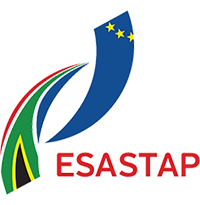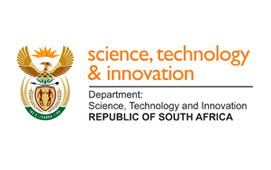Posted: 11 July 2024
Imagine a world where the batteries that power our devices and electric cars no longer end up in landfills, but instead are reborn as valuable resources, fueling the green technologies of tomorrow. This vision became reality thanks to the collaborative success of the End-of-life Li-ion Battery Management Integration and Technology Evaluation (ELiMINATE) project, a ground-breaking initiative concluded in 2024 under the ERA-MIN programme.
Led by Stellenbosch University in South Africa, and supported by global partners including the IVL Swedish Environmental Research Institute, Karadeniz Technical University (KTU), Chalmers University of Technology, and Exitcom Recycling, the ELiMINATE project set out on an ambitious mission: to pave the way for sustainable recycling of end-of-life lithium-ion batteries.
Starting in 2020, the project took on the challenge of developing a viable recycling framework. With a focus on recovering critical metals such as nickel, manganese, and cobalt, the team not only sought to reduce environmental harm but also to position battery recycling as a lucrative industry ripe for investment.
Achieving the unthinkable: From concept to reality
At the heart of ELiMINATE’s success were four key objectives that drove innovation across Europe and South Africa. Researchers explored and developed cutting-edge hydrometallurgical processes that recovered precious metals from end-of-life batteries. Through rigorous economic and environmental performance comparisons, one solution stood out: a process utilising sulfuric acid as a leaching agent, followed by the recovery of metals through the precipitation of a mixed nickel manganese cobalt precursor material. This process emerged as the clear winner in both sustainability and cost-efficiency.
But it didn’t stop there. The project team ventured into uncharted territory by testing new methods like methanesulfonic acid leaching and solvent displacement crystallisation, successfully scaling these techniques to pilot levels at Turkey’s Exitcom Recycling. This innovative spirit not only demonstrated the feasibility of these new technologies but also uncovered opportunities for further development and industry-wide adoption.
Shaping a global recycling future
The impact of ELiMINATE reaches far beyond academia and laboratories. Comprehensive market analyses and reverse logistics studies revealed that the demand for lithium-ion battery recycling is set to skyrocket, particularly with the rising dominance of the nickel manganese cobalt battery market. Armed with this knowledge, the project mapped out optimal locations for battery dismantling and processing facilities, ensuring that future recycling infrastructure is primed for success across different regions.
The ripple effects of this project will be felt for years to come, as the groundwork laid by ELiMINATE opens the door to a sustainable, circular economy for batteries. With every breakthrough, from technology development to market insights, the project has not only pushed the boundaries of what’s possible but has also created a blueprint for others to follow.
A collaborative triumph
This ambitious journey would not have been possible without the unwavering support of the national funding agencies in the respective countries: South Africa’s Department of Science and Innovation, Vinnova, Sweden’s Innovation Agency, and TÜBİTAK in Turkey. Their commitment to innovation and sustainability has set the stage for a future where lithium-ion battery recycling is not just a possibility but a cornerstone of our global transition to greener energy.
Project ELiMINATE’s success story is one of collaboration, perseverance, and visionary thinking. What started as a challenge to find a better way to manage battery waste has evolved into a beacon of hope for the future of sustainable energy solutions, proving that when we unite across borders, the impossible becomes achievable.
Watch an overview of the ELiMINATE project.

